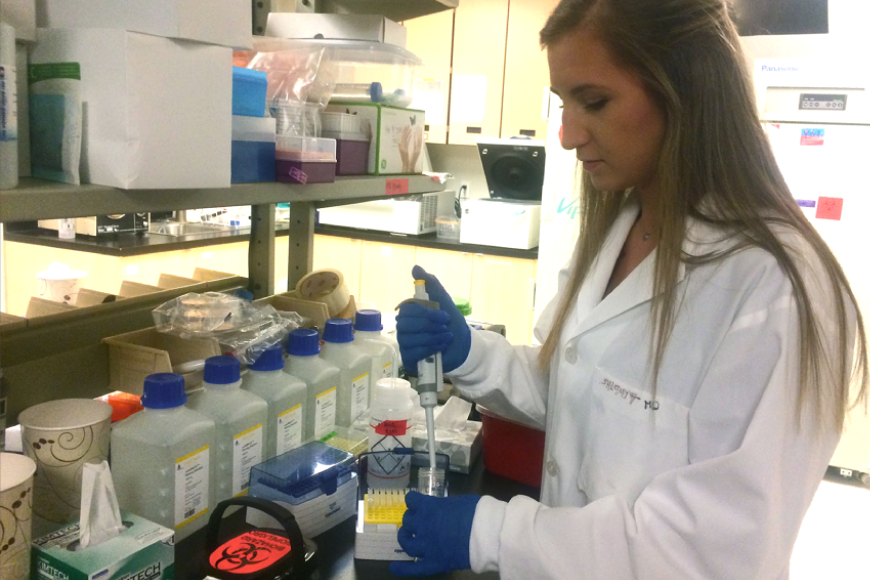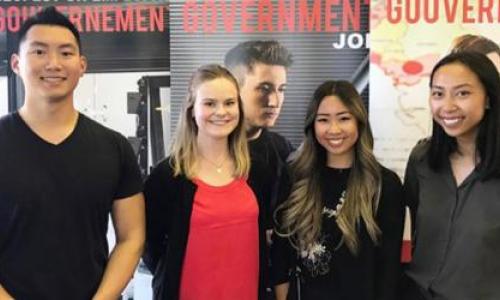
Back in March 2016 if someone would have told me what I would achieve at CReATe Fertility Centre, I would have been astonished. I started my co-op search looking for a health research position but being open to any opportunity that came my way. When I heard back from CReATe Fertility Centre I was beyond thrilled, as this opportunity was exactly what I was looking for. Looking back at this experience it not only confirmed my passion for epidemiological research but also sparked for me a new interest in reproductive health, infertility disorders, and assisted reproductive technologies.
In The Beginning
Before starting my job in the research department at CReATe I knew very little about infertility disorders and assisted reproductive technologies. I did not realize that 1 in 6 couples in Canada and the United States are diagnosed with infertility. This may be attributed to delayed childbearing, as many young adults go on to pursue a higher education or advance their career before trying to build a family. This statistic made me realize that there is not enough awareness about age-related infertility. Even as a fifth-year health science student interested in epidemiology I had never heard of such a statistic. What really put this into perspective for me was realizing that 9% of Canadians suffer from diabetes whereas 16% of couples are infertile. This realization is what really drove me forward during my co-op term and made me become more passionate about my work. Hopefully the work that I do will have an influence on the field of reproductive medicine in the future.
About the Company
CReATe Fertility Centre is a fertility centre located in Downtown Toronto that provides reproductive health care to a variety of individuals and couples locally, nationally, and internationally. They have one of the largest cancer fertility preservation practices in all of Canada and have one of the most extensive translational research programs nationally. There are about 150 employees that work in all the departments of the clinic and around 40 individuals that manage or assist with research-related activities. In research alone, there are various research groups including cardiovascular regeneration, neurovascular regeneration, stem cell-based fertility preservation, embryology, pre-implantation genetics, ovarian biology, andrology, psychosocial, and clinical research programs.
My Projects
Upon starting my position I was excited to hear that I would be working with the Ovarian Biology and Clinical Research Teams. I was assigned two projects to manage throughout my co-op term. The first project I worked on was part of the Ovarian Biology Research Program and focused on investigating Neuronal Growth Factor levels in human follicles, and how they correlate with various infertility diagnoses. For those who have not taken a course on human and embryo development, a follicle is a little sac in the ovary, which contains an immature egg or oocyte. Additionally, neuronal growth factors are the building blocks to the central and peripheral nervous system and can be found in many areas of the body including in human follicles. We were particularly interested in specific Neurotrophic factors, as previous research has correlated levels of certain factors with specific infertility diagnoses. My responsibilities for this project were to review patient charts and collect relevant medical history and treatment parameters. Throughout the project, I reviewed inclusion and exclusion criteria, including written informed consent, and cryopreserved samples from eligible patients for future analysis.
The second project I worked on was a retrospective case-controlled study where I investigated how the Body Mass Index (BMI) of a Gestational Carrier influences their pregnancy and birth outcomes. I have always been intrigued by how various lifestyle factors influence health outcomes and was excited to learn more about how a Gestational Carrier’s BMI could potentially correlate with various fetal and maternal outcomes. I was responsible for reviewing patient charts to collect de-identified patient data that was of interest to the study. I also collected pregnancy and birth outcomes obtained from the Better Outcomes Registry & Network (BORN) Ontario Database. I learned a lot about various fetal and maternal complications that can occur during labor as well as treatment protocols for various in vitro fertilization (IVF) procedures.
In the End
Ever since I switched majors and joined the Health Sciences Co-op program I have always wanted to gain a position working in a health research setting. The co-op program has been incredibly helpful to my success in obtaining a position. It allowed me to develop superior skills for writing a strong resume and cover letter to stand out amongst other applicants. Additionally, it allowed me to take knowledge from the classroom and apply it in the workplace. Nothing is more rewarding than taking what you have studied in lecture and using the knowledge to gain new work experience. The co-op program also has encouraged me to take opportunities that may be out of my comfort zone. It has showed me that, many times, jobs require and lead to more transferrable skills than one might initially believe.
I enjoyed my time immensely at the CReATe Fertility Centre and I look forward to coming back to SFU to share my experiences with other students in the co-op program. I am so thankful for all the help I have received from my supervisors at the clinic and also for the help of the Health Science Co-op Coordinators. I really appreciate the time they have taken to listen to my questions and inquiries. Furthermore, I am grateful for how they have pushed me out of my comfort zone and have helped me gain skills that I will use once I graduate university. In conclusion, I encourage everyone who has the opportunity to join the SFU Health Sciences Co-op Program to do so. I know you will value the experiences as much as I have.
Beyond the Blog
-
Learn about opportunities like Miranda's by visiting the Health Science Co-op homepage.














